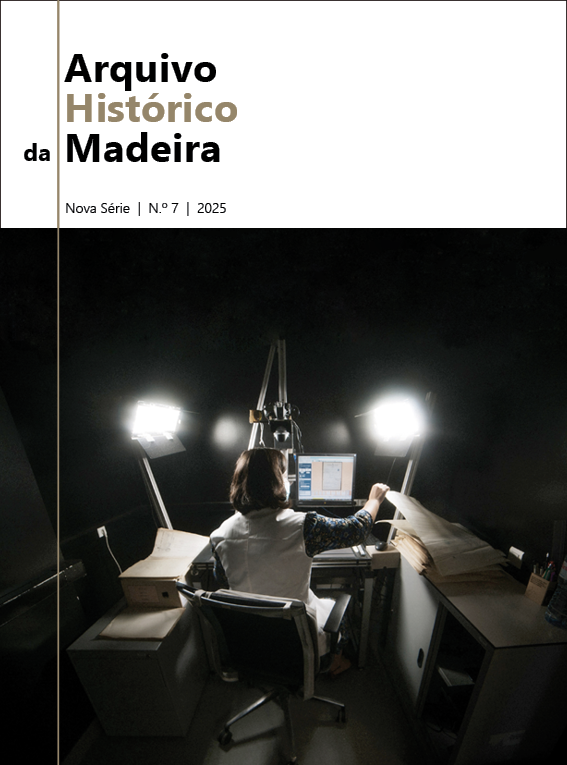Interlinguistic Connections of the Lexicon of Sugar Culture in the Globalization of the Atlantic World: Madeira, Canary Islands, Brazil and Spanish America
Abstract
The island of Madeira was the epicenter of the linguistic and cultural process of transmitting knowledge of sugar activity in the Atlantic. From the 15th century onwards, Madeira, the Canaries, Brazil and Spanish America were places of interconnections, dialogues and linguistic and cultural exchanges around sugar. Many of the sugar culture terms registered as Brazilianisms in the Portuguese language dictionaries of Brazil and Portugal are, in fact, Madeiranisms disseminated on both sides of the Atlantic. Having said this, we intend to compare some terms from the sugar culture present in the European Portuguese and Brazilian Portuguese dictionaries, namely in the Vocabulario by Bluteau (1712-1721) and in the Diccionario da Lingua Portugueza by Morais Silva (1789 and 1813), the first to endorse Brazilian sugar terminology received from Madeira. These are compared with the Portuguese edition of the Houaiss Dictionary of the Portuguese Language (2005), adapted from the Brazilian edition of 2001. The comparison follows with the Tesoro Léxico Canario-Americano by Corrales and Corbella (2010), since that this vocabulary was taken from the island of Madeira to the Canaries and from there it reached Spanish America. Afterwards, it is shown how the Dictionary of the Portuguese Language of the Lisbon Academy of Sciences and other contemporary online dictionaries do not record the regionalisms of sugar culture that still exist today on the island of Madeira and are present in several territories, attesting to the social and historical interrelations with linguistic and cultural aspects of the past. In addition to this study, contemporary oral documentation collected in Madeira, the Canary Islands, Brazil, Venezuela and Colombia is added. From the comparison of this lexicographic documentation, in Portuguese and Spanish, it is concluded that the existing sugar terminology on both sides of the Atlantic confirms the linguistic, historical and geographical path of sugar cane, introduced into Latin America from Madeira and the Canaries.
Keywords: Lexicography; Terminology; Sugar Culture; Madeira and the Canary Islands; Brazil and Spanish America.
Downloads
Published
Issue
Section
License
Copyright (c) 2025 Arquivo Histórico da Madeira, Nova Série

This work is licensed under a Creative Commons Attribution-NonCommercial-NoDerivatives 4.0 International License.



